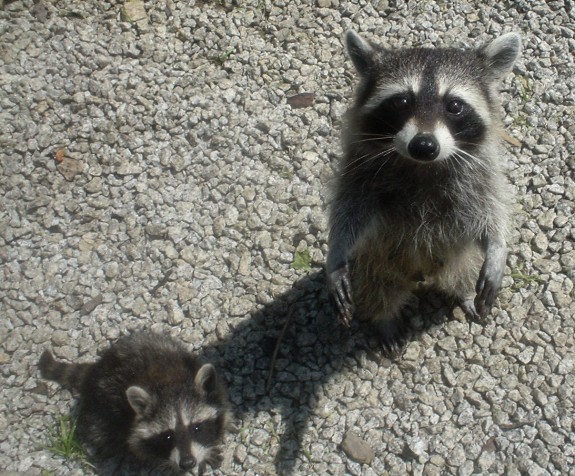Raccoons Are Getting Brain Cancer From a Previously Unknown Virus
A new cancer-causing virus is affecting U.S. raccoons

Photo: Ravi
Ten raccoons from the West coast—nine from outside San Francisco, one from southern Oregon—are the first identified victims of a previously unknown virus, one that spurs the growth of fatal brain tumors, Brandon Keim reports for Wired.
A team led by University of California, Davis veterinarian Patricia Pesavento performed autopsies on the ten fallen raccoons and showed that the tumors started in the raccoon’s olfactory tracts before they “spread to their frontal lobes and compressed their mid-brains,” Keim writes.
In each of the tumors, but not in brain tissue from raccoons tested for comparison, Pesavento’s team found an unknown form of polyomavirus, one of a group of viruses known to cause a rare form of skin cancer in humans and tumors in other animals, including mice and birds. Pesavento’s team called it raccoon polyomavirus.
Indeed, says Discover, as many as 16% of human cancers cases are caused by a virus or a bacteria, so the idea behind the new raccoon disease is not entirely novel.
Intriguingly, says Keim, “he new virus also appears to be more closely related to human than animal polyomaviruses, suggesting a possible origin in our own species. Raccoons are known to frequent sewage drains, and exposure to polyomavirus-laden human waste is almost inevitable.”
Scientists who weren’t part of the study suggested caution in trying to attribute the new cancer-causing virus to any specific cause. The researchers suggest that the new virus is unlikely to jump to humans, but that leaving the disease unchecked would be an “unnecessary risk.”
More from Smithsonian.com:
Wracked by Face Cancer, Tasmanian Devils Fight Off Extinction
How Dogs Fight Cancer
/https://tf-cmsv2-smithsonianmag-media.s3.amazonaws.com/accounts/headshot/smartnews-colin-schultz-240.jpg)
/https://tf-cmsv2-smithsonianmag-media.s3.amazonaws.com/accounts/headshot/smartnews-colin-schultz-240.jpg)